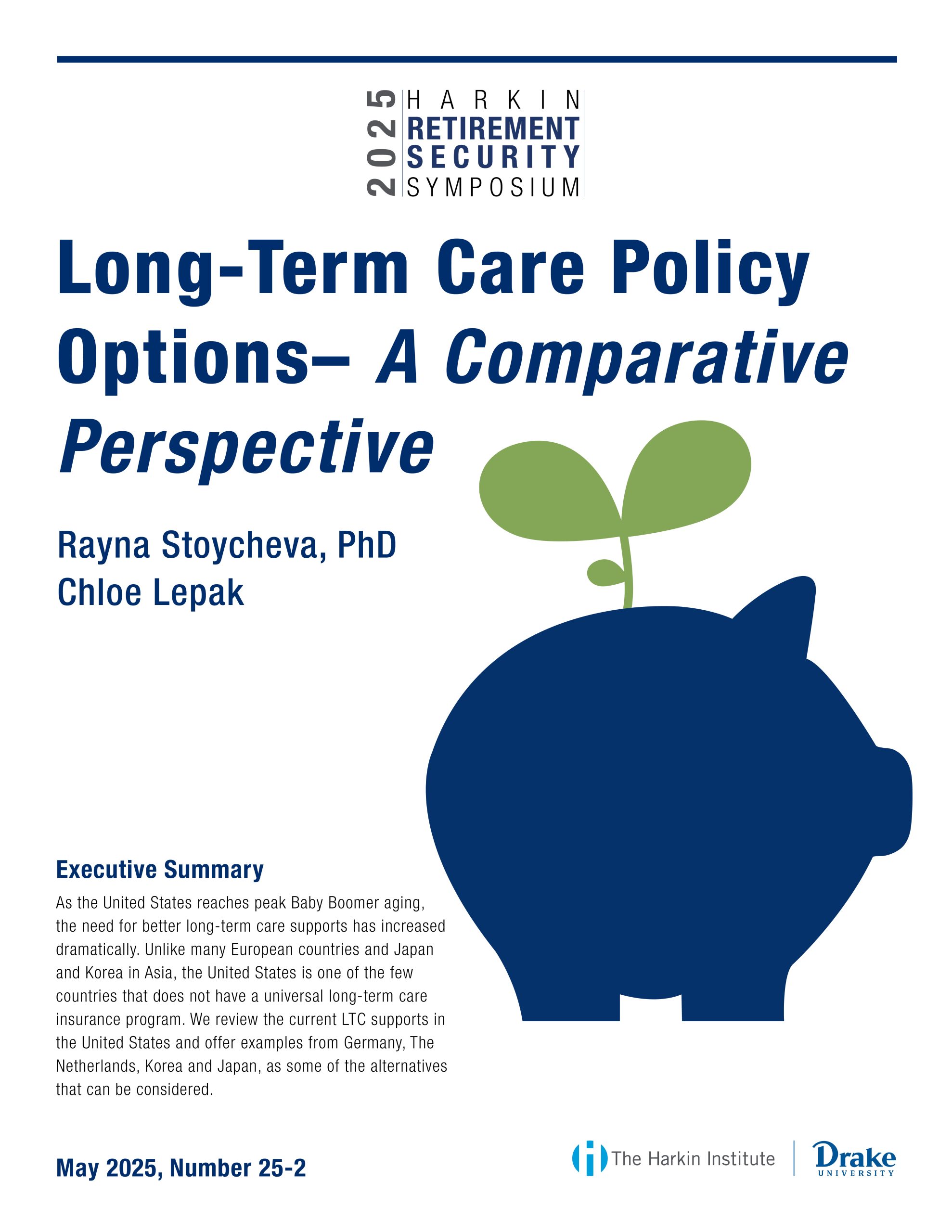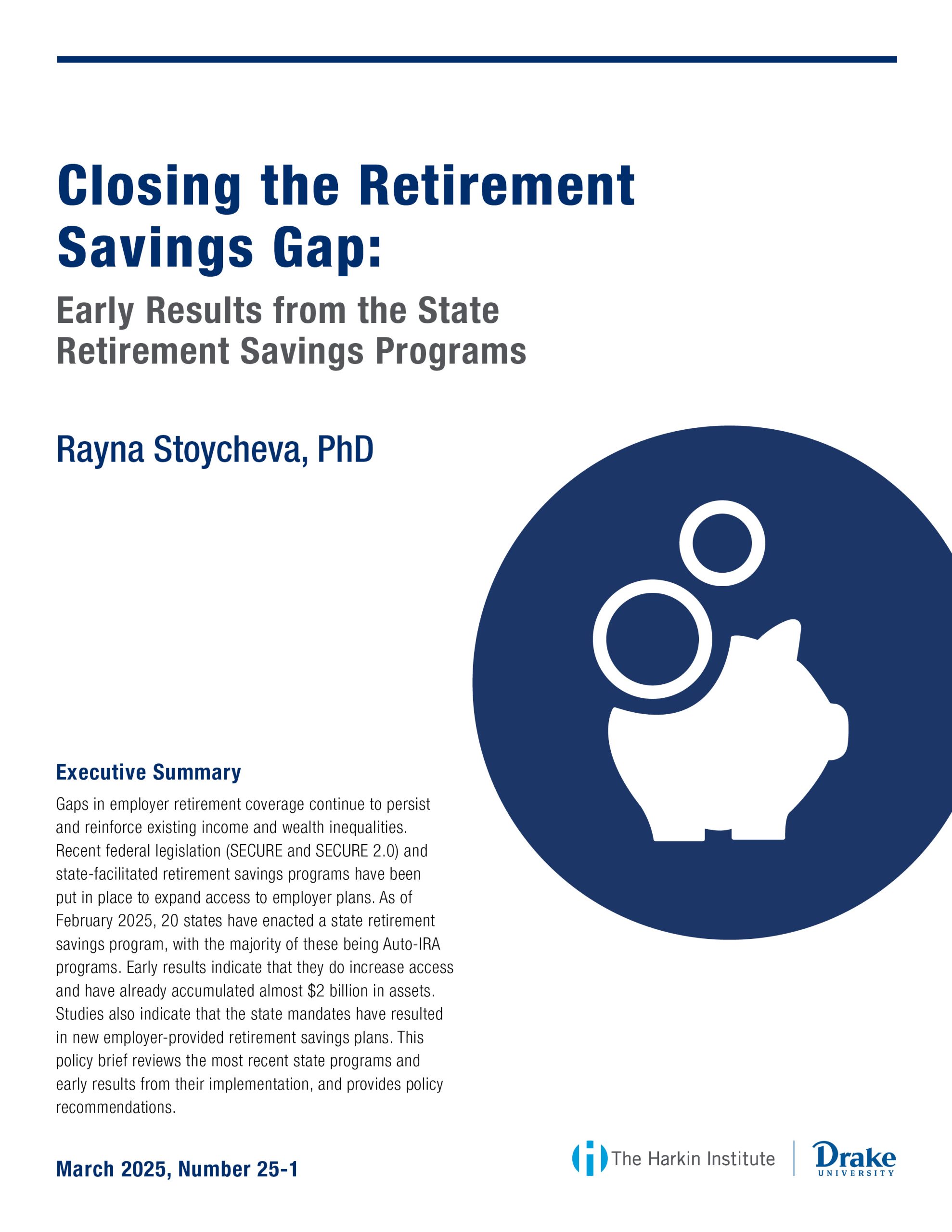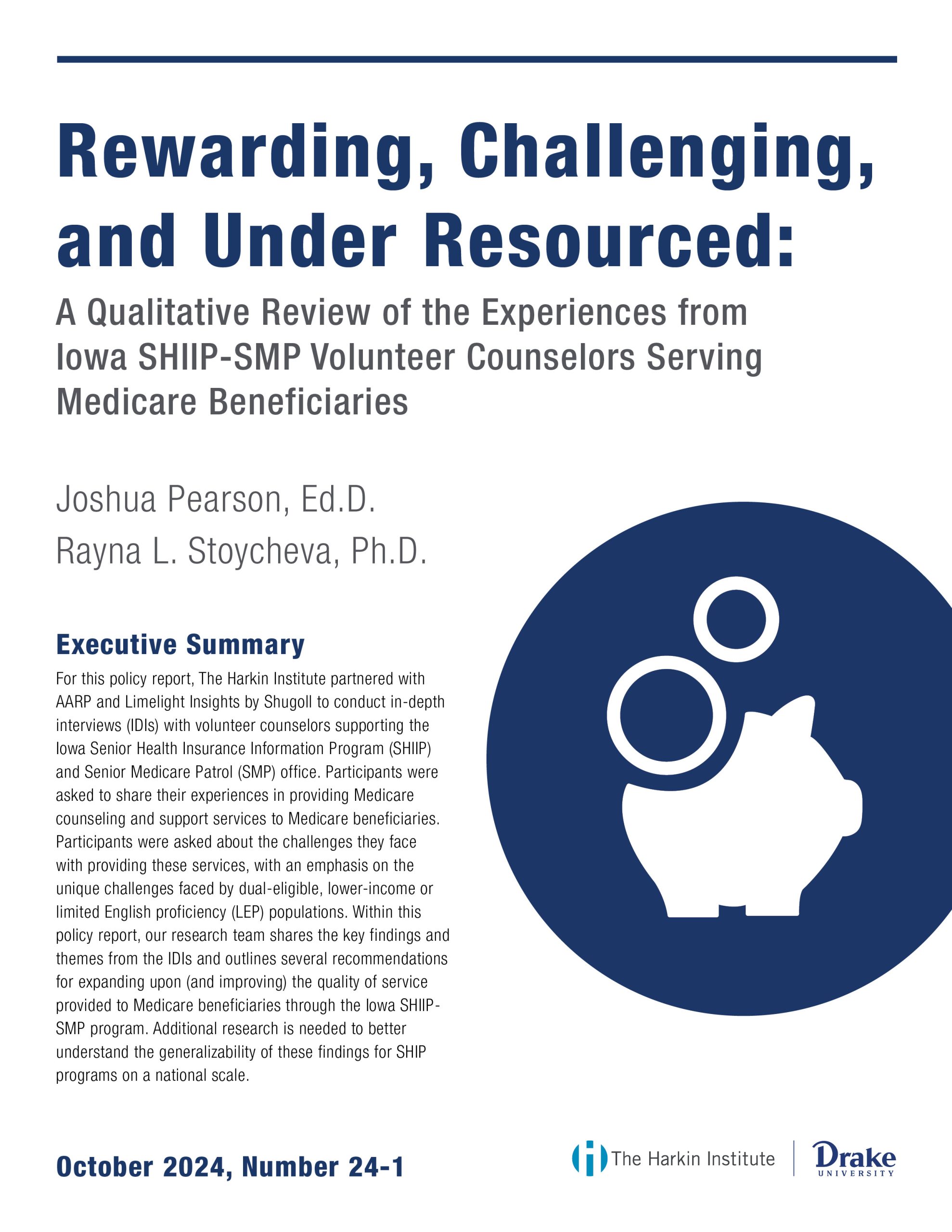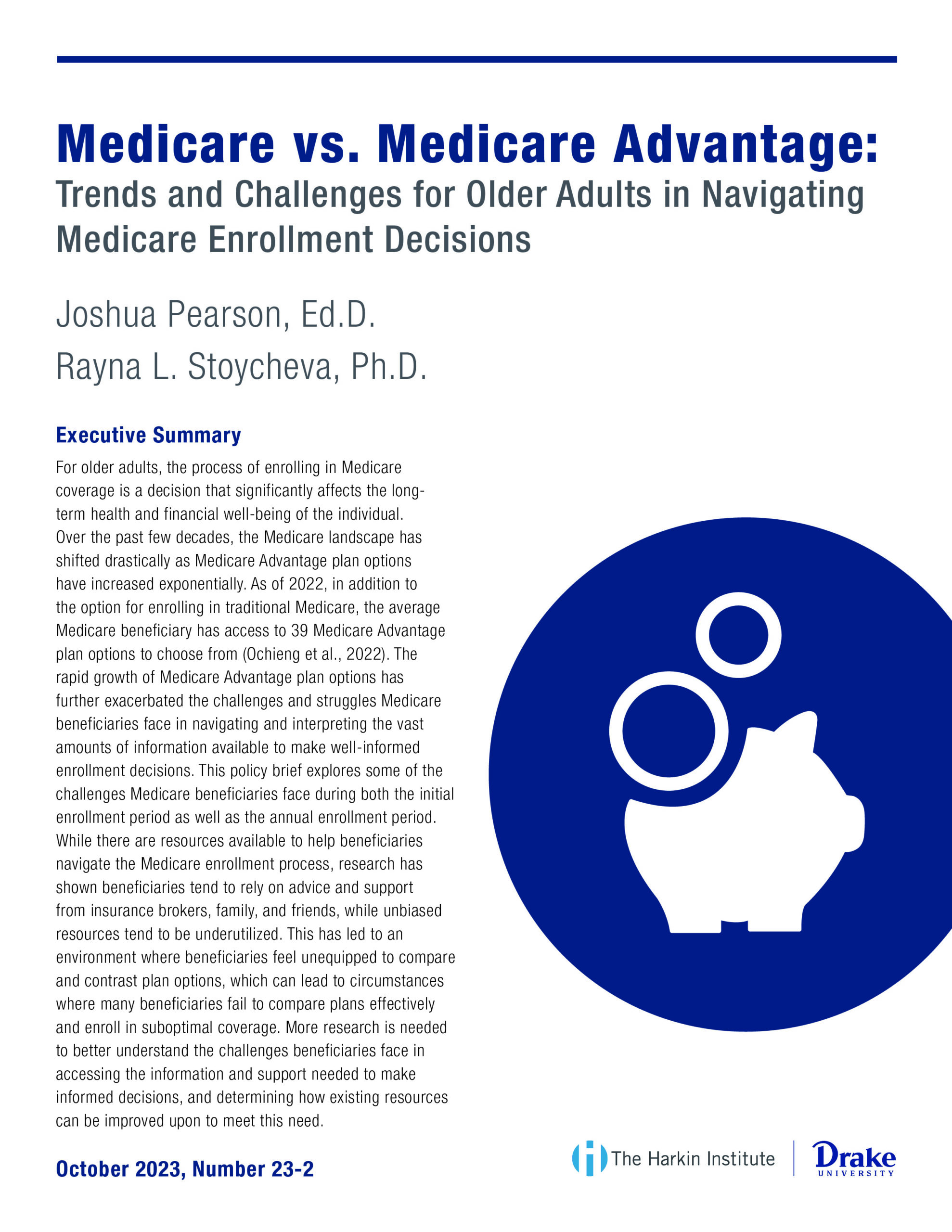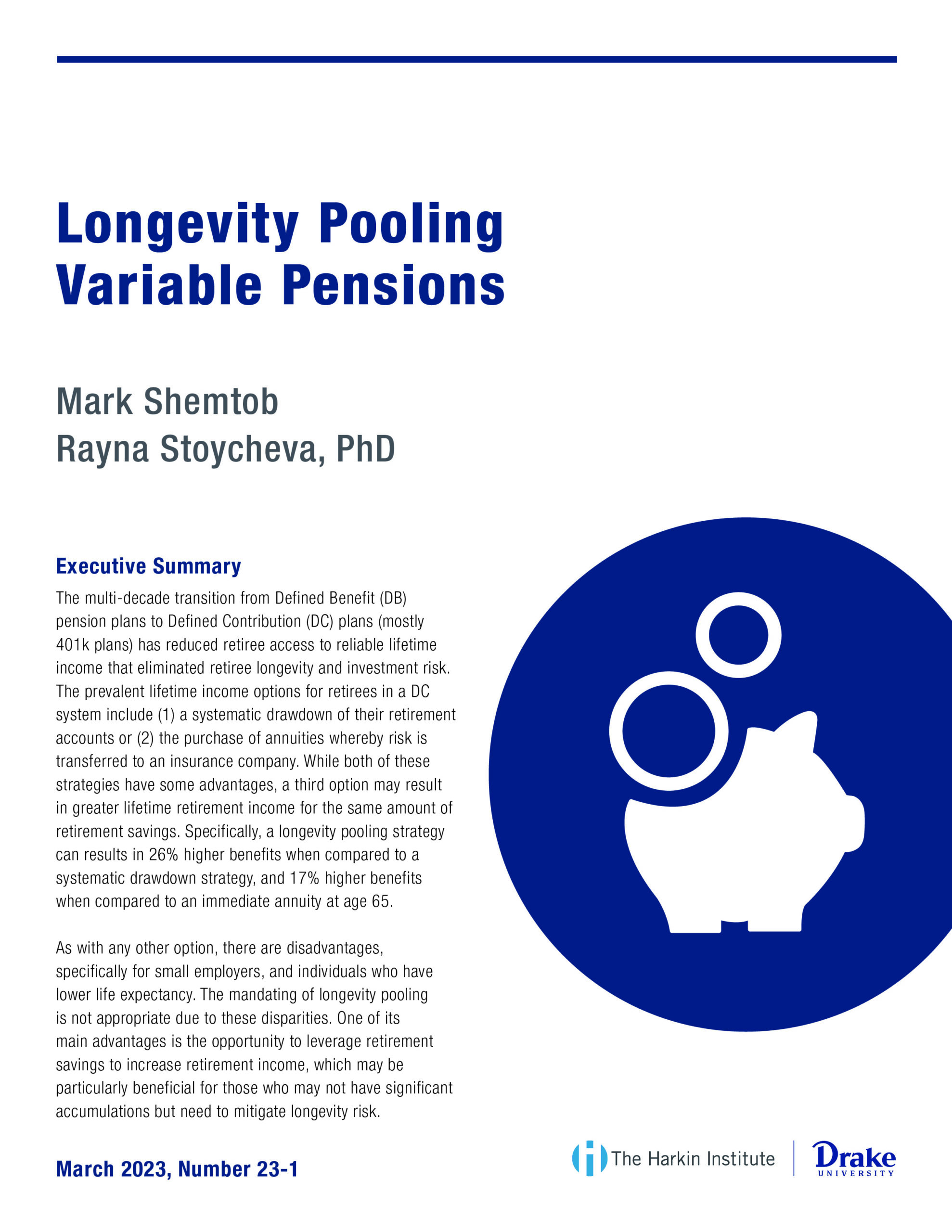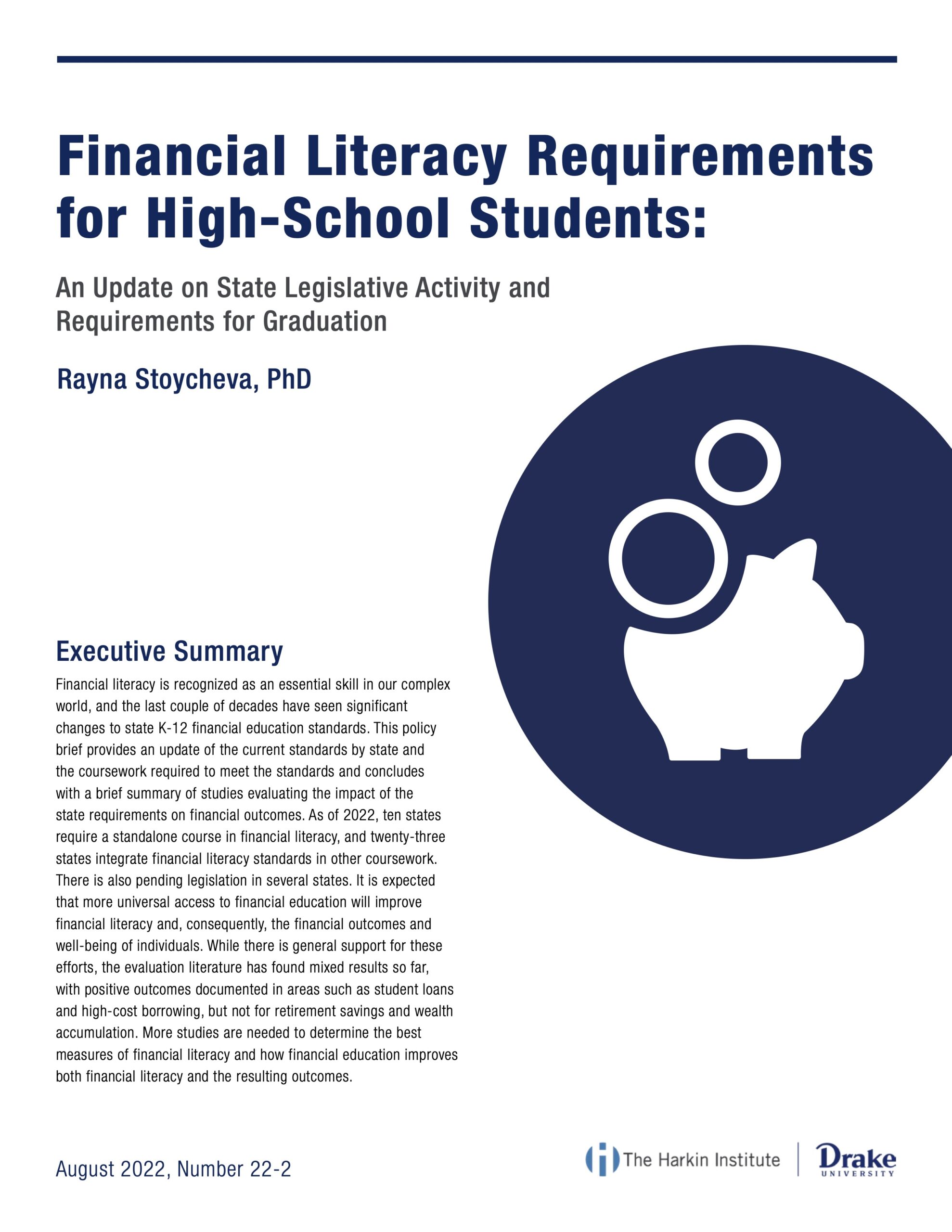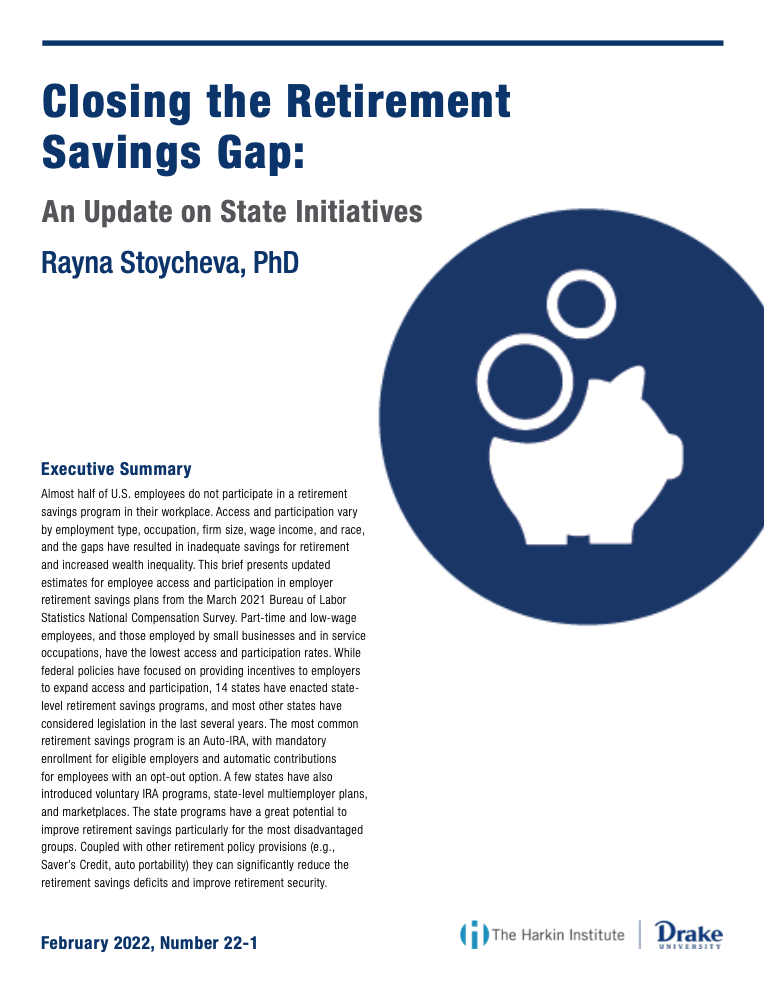Meet Dr. Rayna Stoycheva
Director of Retirement Security Policy

About Rayna:
Rayna Stoycheva joined The Harkin Institute in 2021 to oversee the Institute’s retirement security policy work. She is responsible for research on public and private retirement programs, retirement savings access and adequacy, financial literacy, and pension wealth inequality. Prior to joining THI, Rayna was a faculty member at the University of Miami, where she taught courses in policy analysis, public finance, health economics, microeconomics, and statistics. Rayna received a joint PhD in Public Policy, with a concentration in Public Finance, from Georgia State University and Georgia Institute of Technology. She received a master’s degree in Public Administration from Ohio University and a Bachelor’s degrees in Political Science and Economics from the American University in Bulgaria.
Areas of Expertise
- Retirement savings
- Inequality in retirement preparedness
- Financial literacy
- Long-term care policy
- Medicare and Medicare Advantage
- State retirement savings programs
In the news
- Radio Iowa: Iowans can take online workshop to learn about long-term care insurance
- InsuranceNewsNet: Caregiving and an aging population: How can government help?
- Health Affairs: How State Health Insurance Assistance Programs Can Support Medicare Beneficiaries With Limited English Proficiency
- WUNC: Personal finance course required to earn high school diploma for NC’s public school class of 2024
- The Des Moines Register: No, Social Security cuts aren’t inevitable. Raise the income cutoff.
- Health Affairs: Medicare Enrollment Is Difficult For Older Adults; Here’s What Can Help

Read Rayna’s Work
Address: 2800 University Avenue, Des Moines, IA 50311
Phone: (515) 271-3623
Email: harkininstitute@drake.edu
Office Hours: Monday to Friday 9:00 a.m. to 4:00 p.m.

